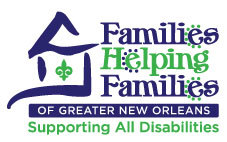Money matters include the skills, knowledge, and tools you need to make financial choices that will help you do what you want to do. Knowing about finances is key to helping you manage money well. You want to have enough to live on as you also save money and reach your personal goals. Decisions made when you’re young can have lasting benefits and drawbacks.
In order to have a balance when it comes to money, you need to know about the following:
- Frauds, scams, and predatory lending practices;
- Public and work-related benefits;
- Banking practices;
- Savings and investing strategies; and
- Credit use and interest rates

Knowing where your money is coming from is very important. You need to be able to manage it if you have to pay for your bills. It’s important to see where you will need help and to have a trusted person available to help you. Even if you do not have a regular income to live on your own at this point, the information will be very helpful to you in planning for your future. The way you spend your money now is probably a sign of what you will do with your money later.
You want to do this:
Save most of your money
Buy things you need
Budget your money so it will last
Plan for purchases
Keep track of your money
You DON’T want to do this:
Spend most of your money
Buy things you want
Spend most of your income as soon as you get it
Buy impulsively
Don’t know where your money goes
The next thing you need to think about is where you will keep your money. As you should already know, it’s not smart to carry all of your cash on you or leave large amounts of cash in your home. It’s also not a good idea to send cash through the mail, as it can be stolen. Savings and checking accounts are the most common way of storing and protecting your money. If you don’t already have a savings and checking account, you will want to open one with a bank with FDIC insurance. This insurance guarantees your money won’t be lost if the bank closes down.
You may be given a debit card with your checking and savings account. Whenever you use your debit card at a store, online, or at an ATM machine, the money is instantly removed from your banking accounts. Before you go swipe happy, you need to make sure you don’t have any checks that haven’t cleared the bank yet. You’ll also need to know you have no bills coming up that need to be paid.


Credit cards and debit cards look alike, but they are totally different things. A credit card is like a loan. Whenever you use a credit card, you will receive a bill and expect to pay a minimum amount. A lot of people get into trouble with credit cards because they buy too many things and then can’t afford to pay for them when the bill arrives. If you don’t pay your bill on time, you then have to pay interest charges and late fees. You will also start getting a bad payment history on your credit report. It’s very important to have a good credit report and score.
Without this, you will have trouble making loans for larger items you may want. You will also pay a higher interest rate, which means you will pay more for the exact same thing than someone with good credit pays. It will also impact your ability to rent an apartment, open up a bank account, or get a good rate on insurance.
Money matters and financial planning is not just about cash and credit. In addition to having a savings account and a credit card, you will want to have things like insurance. Insurance does cost! But in the event of an emergency, insurance will help you replace items you lost because of theft, fire, tornado, hurricane, or for flood. You will need to decide if you need insurance and which ones.
Resources
Counting Money: The Value of Money
Introduction to Money Basics: Financial Literacy for Teens
Introduction to Financial Literacy: Money Management for Teens
What is Money? Financial Literacy for Teens
Forms of Financial Exchange: Financial Literacy for Teens
Financial Institutions: Financial Literacy for Teens
Interests: Financial Literacy for Teens
Introduction to Credit: Finance for Teens
Managing your Money Worksheet
The Difference Between Debit and Credit Cards
